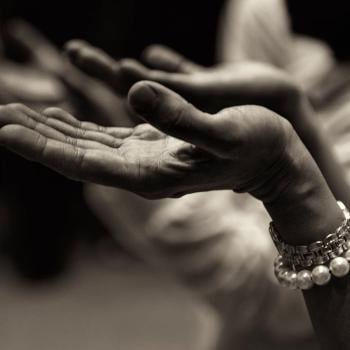
Excerpt from the book Copyright © 2025 by Karl Forehand
Why is God’s Punishment So Extreme?
“Questions are the engines of intellect, the cerebral machines which convert energy to motion.” – Eric C. Eichinger
I often joke about the saying, “Our parents spanked us, and we turned out okay.” I’ve pointed out that those who make such claims are seldom the best examples of having “turned out okay.” Like many, I occasionally lost my cool and felt frustrated when my children made a mess, broke valuable items, or when a puppy chewed up a couch for no reason. Life’s surprises can trigger our past wounds and lead us to respond from a more primitive part of our brains.
It’s a reaction! It’s a trigger! We respond almost instinctively, often before we can engage our rational thinking to address the situation thoughtfully. To avoid this automatic reaction, we diligently focus on healing the trauma that causes these triggers. We also practice self-regulation techniques, such as deep breathing, to calm ourselves before taking actions we might later regret. This process involves personal growth, maturity, and acting responsibly in our environments.
We encourage our children from a young age not to respond impulsively to every challenge they face. We guide them in managing their anger, sharing with others, and showing kindness. In the Christian tradition, Jesus highlighted the importance of loving one’s neighbor and treating others as we want to be treated. Developing self-control, especially when caring for a pet or a child, requires time, practice, and maturity. We must learn to pause and regain our composure before harming anyone else.
Managing life’s stressors takes years of practice and conditioning. When individuals break the rules, rather than ignoring their actions, we learn to respond in reasonable ways that avoid violence or other harmful behaviors, especially toward our children. If we excuse poor behavior based on others’ actions, we fail to be mature, compassionate, loving, or healthy. We avoid excessive control driven by fear and implement corrections tailored to each offense.
I mention this because the God of Christianity seems unreasonable regarding our wrongdoings and the punishments that follow. While we believe we have moved past severe penalties for minor infractions, the God of Christianity appears even more unforgiving. According to the narrative, even a minor transgression, like lying to our parents (something we have all done) or pushing a classmate, results in a sentence of eternal conscious torment (Hell) from God, regardless of how trivial the offense may be.
It’s essential to recognize that the teachings of Christianity can be confusing and inconsistent, permitting practices such as slavery while prohibiting the consumption of pork. The accounts in the Old Testament are often violent, and God’s portrayal there appears to be equally unforgiving. Furthermore, this God is depicted not just as punitive but also as one who reportedly destroyed all of humanity due to their failures within the framework He established.
Good fathers prioritize restoration over retribution, exemplified by Jesus’ compassion during his time. However, if both are considered God, a conflict arises since God cannot embody retribution and restoration simultaneously. Trust in His judgment becomes questionable if He misjudges circumstances, believing it is acceptable to condemn someone eternally for not understanding the rules or for succumbing to their passions.
We have all contemplated the downfall of our “enemies,” wishing dreadful things upon them. We were hurt, and for a time, we simmered with anger until we no longer had enough time to process our pain. Sometimes, we forgive them or learn to establish boundaries. As we deal with narcissists, we often make excuses for them, just as many people do for God. His unpredictable approach to justice seems more than excessive; it is not the behavior of a responsible adult and likely fosters fear and insecurity in humans rather than promoting maturity.
Is it acceptable to support, worship, finance, and empower someone with a narcissistic personality who has such a distorted view of fairness and judgment?
In a previous chapter, I noted that many of these perspectives were developed long after Jesus’s life. I cannot invest time in a theologian, pastor, or anyone who supports this dysfunctional view of the divine. While it may help justify our wars and wrongdoings, it will never contribute to the higher ideals of Christianity.
I have reached a point where I cannot imagine torturing a bug or an animal, let alone a human being. I sincerely hope those who lead immoral lives can find restoration and face the shame and guilt stemming from their actions. I hope they will eventually feel remorse and, if possible, receive forgiveness from their victims. I do not share the belief of some former pastors who suggest that humans are “deserving of hell.” My children are imperfect, which can sometimes frustrate me; however, we have learned to navigate our lives more effectively, developing greater maturity and a close relationship. Retribution does not address long-term issues; it merely intensifies them.
I hope we all can heal from our trauma, respond more positively to life’s challenges, and release the idea of an angry, manipulative deity who tortures humans, reminiscent of how some of us might have treated bugs in our childhood. Such a perspective isn’t beneficial for anyone; it simply fuels anxiety, depression, and harmful thoughts toward us and others.
Questions About Questions
What belief(s) did you inherit concerning this question?
How is your response to this question changing?
Learn to be Where You Are (Presence)
Learn to be Who You Are (Authenticity)
Finding Regulating and Somatic Healing
Are you genuinely committed to deconstruction and seeking more profound answers?
If that’s the case, this book was created for you. As a former pastor, I made the mistake of deconstructing a bit and then trying to start something new, as I was trained to do. The problem with that approach is that I wasn’t ready to begin something new.

I hadn’t delved deeply enough or asked enough questions. The first stage of deconstruction typically includes assessing our beliefs regarding hell and the afterlife, supporting queer individuals and women in their fight for equality, and achieving a better understanding of racism and privilege.
Many people in deconstruction communities expend significant effort criticizing Evangelicals and attempting to gain a following. While I believe they deserve intense criticism, this strategy fails to effectively tackle the problem because they generally don’t listen to us!
Our tendency to punish our former organizations sometimes overlooks the challenging process of healing and growth. It is the same trap we fell into in our former associations.

Campfires occupy a special spot in the mosaic of history. They act as communal hubs across different cultures and faiths. The campfire’s circular design fosters equal participation within the collective group. The flames at the center draw our focus and encourage face-to-face interactions as we exchange experiences, wisdom, and insights about the world beyond. It is where legendary myths and tales are born.
Order Now – Study Questions in each chapter!
This book is named Campfires in the Desert as it stems from nearly 400 discussions we held with individuals on our podcast, The Desert Sanctuary, and our aspiration to improve.
Available now!
Thanks for considering us, autographed copies are $20
Karl Forehand Campfires in the Desert – A Soft Book Release. Karl Forehand is a former pastor, podcaster, and award-winning author. His books include Out into the Desert, Leaning Forward, Apparent Faith: What Fatherhood Taught Me About the Father’s Heart, The Tea Shop, and Being: A Journey Toward Presence and Authenticity. He is the creator of The Desert Sanctuary podcast and community. He has been married to his wife Laura for 35 years and has one dog named Winston. His three children are grown and are beginning to multiply! You can read more about the author here.
















